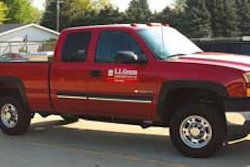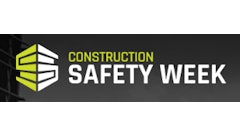Editor's note: The following is condensed from a seminar presented at the American Society of Concrete Contractors' Fall Conference.
Many contractors don't realize the legal risk at which they or their employees put the company every day.
In construction, there's not a lot of thought given to employment law, and that can open a company up to legal danger, says Robert Lapota, senior manager at MRA—Institute of Management.
Lapota, whose firm has several construction clients in the Midwest, says that most problems occur not because of the actions of the owner, but those of other employees.
"Over 90 percent of the cases I read are having to do with someone's direct supervisor or other employees," he says. "It's usually something along the lines of ‘You treated me unfairly.' "
The way a superintendent or foreman handles a problem can affect how you as an owner are treated by the courts — even if you have no knowledge of the problem.
"If someone supervises even one employee or has hiring/firing input, that person is an agent of the employer," Lapota says. "That means everything they do is equal to the company doing it."
So its important to make sure all employees understand the dangers of harassment, discrimination or anything else that could be perceived as unfair treatment, he says.
Problems can start with the hiring process. If somebody isn't hired for a job, document the reasons why.
"Let's say you have a pregnant woman apply for a job with the company," Lapota says. "If you have in your job requirements that someone has to be able to lift 80 lbs., then she can't do the job. But it's important in your files that you cite that reason, not that she's pregnant, for not hiring her."
Lapota also stresses the importance of making sure you can justify any such job requirements.
"There has to be a legitimate business reason and evidence to back up why you're doing what you're doing," he says. "If someone has to lift 80 lbs. to get the job, you have to be able to show where someone doing the job needs to lift 80 lbs."
There are several areas defined as "protected classes" based on federal fair employment laws. These are factors that cannot be used to make decision in hiring or firing decisions.
- Age
- Race
- Color
- Sex
- Religion
- National origin
- Pregnancy
- Disability
- Military status
Most nonunion jobs are what is known as "employment-at-will," which means the employee can quit at any time for any reason and the employer may terminate the employee at any time for any reason. While it sounds good in theory, in practice it's very difficult to fire someone without giving them a reason, and avoid legal action.
Even if you can eventually win a lawsuit, it can tie your company up in legal battles for years, Lapota says.
"If you're going to fire someone, you have to document the poor performance, and address it with the employee," he says.
This means having a written record of the problems with the employee, that is signed and dated by both the supervisor and the employee. Oral warnings to the employee are not good enough, Lapota says. If the employee refuses to sign the documents, have a second supervisor witness and sign that the employee was told of the problems. Good written records are important because it can be years before the case reaches a courtroom.
Avoiding discrimination
There are obviously valid claims of discrimination as well. Every employee, especially those that qualify as "agents," need to be aware of the actions that can put your company in legal danger.
There are four basic types of discrimination, Lapota says.
- Disparate treatment — When one individual is treated differently than another.
- Disparate impact — When an action has a bigger impact on a certain class, such as women.
- Harassment — When someone is made to feel uncomfortable because of their sex, race or other difference. Even if it's not intentional, it can be actionable.
- Undertaking or failing to undertake action — If a supervisor receives a complaint of, for example, harassment, and does not address the problem.
If you hire subcontractors, you may be held liable for any problems they cause, as well, Lapota says. So it's also important to be aware of their training and policies as well.
While employment law is fairly standard from state to state, their may be local variations in what you need to know. Be sure to consult with local experts if you have any concerns and always err on the side of caution, Lapota says.
MRA—Institute of Management is located in Waukesha, Wis. For more information, visit www.mranet.org.


















